Michael
•June 29, 2025

The decision between buying property in Dubai versus renting has become increasingly complex in 2025, as the emirate's real estate market continues its remarkable growth trajectory while rental costs surge to unprecedented levels. With Dubai property market values rising 8% in just the first five months of 2025 and rental prices predicted to jump by 18% for short-term leases and 13% for long-term rentals, both residents and newcomers face a critical financial decision that could impact their wealth for years to come.
Dubai's position as a global business hub and lifestyle destination has attracted over 50,000 new residents in Q1 2025 alone, intensifying competition for both rental and purchase properties. The emirate's tax-free environment, world-class infrastructure, and strategic location continue to draw high-net-worth individuals from around the world, creating a unique market dynamic where the best real estate agent in Dubai becomes essential for navigating these complex decisions.
Whether you're a family considering long-term stability, an investor analyzing rental yields versus capital appreciation, or a professional weighing flexibility against equity building, understanding the current market dynamics is crucial for making an informed choice. The Dubai real estate investment landscape offers compelling opportunities on both sides of the equation, but the optimal decision depends on your personal circumstances, financial goals, and market timing.
This comprehensive guide examines every aspect of the buy versus rent decision in Dubai's 2025 market, providing data-driven insights, financial analysis, and practical advice to help you determine the best path forward. From analyzing current mortgage rates and rental trends to understanding the total cost of ownership and investment potential, we'll explore how to work with the best real estate agency in Dubai to achieve your property objectives.
Dubai's real estate market in 2025 presents a fascinating study in supply and demand economics, where unprecedented growth meets strategic government planning to create both opportunities and challenges for property seekers. The market's evolution over the past year has fundamentally altered the financial calculations that inform the buy versus rent decision, making professional guidance from the best real estate broker in Dubai more valuable than ever.
The Dubai property market has demonstrated remarkable resilience and growth throughout 2024 and into 2025, with transaction volumes and values reaching historic highs. The Dubai Land Department reported over 48,000 property sales in Q3 2024 alone, totaling more than AED 120 billion in transaction value. This momentum has continued into 2025, with property prices increasing by an average of 1.6% monthly and achieving 24.7% year-on-year growth in some areas.
The market's strength is particularly evident in the luxury segment, where properties valued above AED 10 million have experienced over 60% growth in transaction volume year-on-year. This premium market activity reflects the continued influx of high-net-worth individuals who view Dubai as both a lifestyle destination and a strategic investment location. For those considering buying property in Dubai, these trends suggest strong potential for capital appreciation, though they also indicate increasingly competitive market conditions.
One of the most significant factors influencing the buy versus rent decision is Dubai's substantial development pipeline, which promises to reshape market dynamics over the next two years. Approximately 182,000 new residential units are projected for completion between 2025 and 2026, with around 76,000 units expected to be delivered in 2025 alone. This represents a dramatic increase from the 30,000 units completed in 2024.
The supply surge has prompted varying predictions from market analysts. Fitch Ratings forecasts a moderate correction in property prices during late 2025 and 2026, suggesting potential opportunities for buyers who can time their purchases strategically. However, the sustained population growth and continued investor interest indicate that any price adjustments may be temporary, followed by renewed growth as demand absorbs the additional supply.
For rental markets, the increased supply is expected to provide some relief from the rapid price increases experienced in recent years. Real estate analysts predict that rental prices will face sustained downward pressure through 2025 and 2026, particularly as over 200,000 new units enter the market. This projection suggests that renting may become relatively more attractive compared to buying during this period.
Dubai's economic foundation provides crucial context for property decisions, with the emirate's GDP forecasted to grow by 3.3% in 2025 and 3.5% in 2026. This sustained economic expansion, supported by continued diversification away from oil dependency, creates a stable environment for both property investment and rental demand. The UAE's removal from the Financial Action Task Force's Grey List in February 2024 has further enhanced Dubai's reputation as a transparent and secure destination for international investment.
The Dubai Real Estate Strategy 2033 represents a comprehensive framework for market development, focusing on doubling the sector's contribution to GDP while fostering innovation and technology integration. This strategy emphasizes transparency, balanced supply and demand, and attraction of investments from emerging markets, creating a more sophisticated and regulated market environment that benefits both buyers and renters.

The decision to purchase property in Dubai involves complex financial considerations that extend far beyond simple monthly payment comparisons. Understanding the total cost of ownership, financing options, and long-term wealth implications requires careful analysis of current market conditions and personal financial circumstances.
Dubai's mortgage market in 2025 presents a mixed picture for potential buyers, with significant variations based on residency status and property value. UAE residents enjoy relatively favorable conditions with average mortgage rates of 3.99%, while non-residents face higher rates ranging from 4.99% to 5.49%. These rates, while higher than historical lows, remain competitive by regional standards and make property financing accessible for qualified borrowers.
The financing landscape has evolved significantly, with banks no longer financing Dubai Land Department fees (4% of property value) and broker commissions (2% of property value) as of February 2025. This change increases upfront cash requirements by 6% of the property value beyond the standard down payment, representing a substantial additional cost that buyers must factor into their financial planning.
Down payment requirements vary based on residency status and property value. UAE residents can access financing with as little as 20% down for properties under AED 5 million, while non-residents typically require 25-40% depending on the property value and lender requirements. For properties exceeding AED 5 million, down payment requirements increase to 30-50%, reflecting the higher risk profile associated with luxury property financing.
Understanding the true cost of property ownership in Dubai requires examining all associated expenses beyond the purchase price and mortgage payments. Service charges, which cover building maintenance, security, and common area upkeep, can range from AED 8-25 per square foot annually depending on the development's amenities and location. Premium developments with extensive facilities may charge even higher rates.
Community fees, typically ranging from AED 2-10 per square foot annually, support broader neighborhood infrastructure and services. These fees vary significantly between different areas of Dubai, with established communities like Downtown Dubai and Dubai Marina generally commanding higher fees due to their premium locations and extensive amenities.
Property registration and transfer costs add approximately 4% to the purchase price through Dubai Land Department fees, while real estate broker commissions typically add another 2%. Additional costs include property valuation fees, mortgage arrangement fees, and legal expenses, which can collectively add 1-2% to the total transaction cost.
For investors considering buying property in Dubai, rental yields remain attractive despite recent price appreciation. Current gross rental yields average 7.3% for apartments and 5.0% for villas, comparing favorably to many international markets. These yields, combined with Dubai's tax-free environment and potential for capital appreciation, create compelling investment propositions for those with sufficient capital and risk tolerance.
The rental market's strength provides property owners with multiple income strategies. Traditional long-term rentals offer stability and predictable income streams, while short-term vacation rentals can generate higher returns during peak tourist seasons. The choice between these strategies depends on property location, target market, and management capabilities.
Capital appreciation potential remains strong despite recent price increases, driven by Dubai's continued population growth, economic diversification, and strategic government initiatives. The emirate's position as a global business hub and lifestyle destination suggests sustained demand for quality properties, particularly in well-located developments with strong amenities.
Dubai's tax-free environment provides significant advantages for property owners, with no capital gains tax on property sales and no annual property taxes. This tax structure enhances the total return on investment compared to many international markets where property ownership incurs substantial ongoing tax obligations.
The wealth-building potential of property ownership extends beyond rental income and capital appreciation to include leverage benefits and inflation protection. Property ownership allows investors to use borrowed money to control valuable assets, potentially amplifying returns when property values increase. Additionally, real estate often serves as an effective hedge against inflation, as property values and rental income typically rise with general price levels.
Renting property in Dubai offers distinct financial advantages that may outweigh the benefits of ownership for many residents, particularly given current market conditions and the substantial upfront costs associated with property purchase. Understanding these advantages requires examining both immediate financial benefits and long-term opportunity costs.
Dubai's rental market in 2025 reflects the tension between strong demand and increasing supply, creating a complex environment for tenants. Rental prices have increased significantly, with analysts predicting average increases of 18% for short-term leases and 13% for long-term rentals throughout 2025. However, the substantial supply pipeline expected to deliver 76,000 new units in 2025 may moderate these increases in the latter half of the year.
The rental market offers diverse options across Dubai's various communities, with prices ranging from AED 25,000 annually for budget studios in outlying areas to AED 250,000+ for luxury two-bedroom apartments in prime locations. This range provides flexibility for tenants to match their housing costs to their income levels and lifestyle preferences without the substantial upfront investment required for property purchase.
Rental agreements in Dubai typically require annual payments, though some landlords accept multiple post-dated checks to spread payments throughout the year. Security deposits usually equal 5-10% of annual rent, representing a significantly lower upfront cost compared to property down payments. The implementation of the Smart Rental Index has brought more transparency to rental pricing, with 70% of rental contracts now being renewals rather than new agreements.

Renting provides unmatched flexibility for residents whose circumstances may change due to career opportunities, family considerations, or lifestyle preferences. This flexibility is particularly valuable in Dubai's dynamic business environment, where professionals often receive international assignments or career advancement opportunities that require relocation.
The ability to move between different areas of Dubai without the transaction costs and time commitments associated with property sales allows renters to optimize their living situations as their needs evolve. Young professionals might start in more affordable areas and move to premium locations as their careers advance, while families can relocate to accommodate changing school requirements or lifestyle preferences.
Renting also provides access to premium locations and amenities that might be financially out of reach for purchase. A family might rent a luxury apartment in Downtown Dubai or Dubai Marina for less than the annual carrying costs of owning a similar property, when factoring in mortgage payments, service charges, and opportunity costs of the down payment.
Rental arrangements transfer significant financial risks from tenants to property owners, including maintenance responsibilities, service charge increases, and market value fluctuations. Tenants are protected from unexpected major repairs, building system failures, or community fee increases that can substantially impact property owners' budgets.
The absence of maintenance responsibilities allows renters to budget more predictably for housing costs, without concerns about air conditioning failures, plumbing issues, or building system upgrades. Property owners bear these risks and costs, which can be substantial in Dubai's climate where air conditioning systems work intensively year-round.
Market risk protection is particularly valuable given current market conditions and supply projections. Renters are insulated from potential property value declines that could affect owners who purchased at current peak prices. If Fitch Ratings' predictions of moderate price corrections prove accurate, renters will avoid the capital losses that property owners might experience.
The substantial upfront costs required for property purchase in Dubai create significant opportunity costs that favor renting for many residents. The down payment, closing costs, and additional cash requirements can easily exceed AED 500,000-1,000,000 for a typical family property, representing capital that could be invested in other assets or business opportunities.
Alternative investment opportunities may offer superior risk-adjusted returns compared to Dubai real estate, particularly for investors with expertise in other markets or asset classes. Global stock markets, international real estate investment trusts, or business investments might provide better diversification and liquidity than direct property ownership.
The liquidity advantage of renting cannot be overstated, particularly for expatriate residents who may need to relocate on short notice. Property sales can take months to complete and involve substantial transaction costs, while rental agreements typically require only 30-90 days notice for termination.
To make an informed decision between buying and renting property in Dubai, potential residents must conduct thorough financial analysis that considers their specific circumstances, market conditions, and long-term objectives. This analysis requires examining multiple scenarios and understanding how various factors influence the relative attractiveness of each option.
The buy versus rent decision depends heavily on individual circumstances, including income level, available capital, residency status, and long-term plans. Consider a typical scenario involving a family seeking a two-bedroom apartment in Dubai Marina, one of the emirate's most popular residential areas.
For purchase, a quality two-bedroom apartment in Dubai Marina currently costs approximately AED 2.5 million. UAE residents would require a minimum 20% down payment (AED 500,000), plus 6% additional costs for DLD fees and broker commission (AED 150,000), totaling AED 650,000 in upfront costs. Monthly mortgage payments at 3.99% interest over 25 years would approximate AED 10,500, plus service charges of AED 2,000-3,000 monthly.
The same property might rent for AED 140,000-160,000 annually, or approximately AED 11,700-13,300 monthly. While monthly rental costs appear similar to ownership costs, the upfront capital requirement differs dramatically, creating the foundation for comparative analysis.
Break-even analysis reveals the time period required for ownership benefits to offset the higher upfront costs and ongoing expenses associated with property purchase. This analysis must consider not only monthly payment differences but also opportunity costs of invested capital, maintenance expenses, and potential appreciation or depreciation.
Using the Dubai Marina example, the AED 650,000 upfront cost could alternatively be invested in diversified portfolios earning 6-8% annually. Over a five-year period, this investment might grow to AED 870,000-960,000, representing the opportunity cost of property purchase. For ownership to be financially superior, the combination of mortgage principal reduction, property appreciation, and rental savings must exceed this opportunity cost.
Property appreciation assumptions significantly impact break-even calculations. If Dubai property values continue growing at 8% annually, the AED 2.5 million property would be worth approximately AED 3.7 million after five years, representing AED 1.2 million in appreciation. However, if Fitch Ratings' correction predictions prove accurate and values decline 10-15% before recovering, the break-even timeline extends significantly.
Dubai's tax-free environment simplifies total return analysis by eliminating capital gains taxes and annual property taxes that complicate similar calculations in other markets. This advantage particularly benefits property owners who can realize appreciation gains without tax consequences, enhancing the relative attractiveness of ownership.
However, the absence of mortgage interest deductions, which benefit property owners in many other countries, means that financing costs represent pure expenses without tax benefits. This factor slightly favors renting from a tax perspective, as rental payments don't generate additional tax obligations.
The total return analysis must also consider inflation protection benefits of property ownership. Real estate typically maintains purchasing power during inflationary periods, while rental agreements may include annual increase limitations that protect tenants from inflation in the short term but potentially disadvantage them over longer periods.
Comprehensive financial analysis requires examining multiple scenarios that reflect potential market conditions and personal circumstances. Optimistic scenarios might assume continued strong economic growth, sustained population increases, and property appreciation of 5-8% annually. Under these conditions, property ownership typically provides superior long-term returns despite higher upfront costs.
Pessimistic scenarios consider potential economic downturns, oversupply impacts, or personal circumstances requiring early relocation. Under these conditions, renting provides superior flexibility and risk protection, avoiding potential capital losses and transaction costs associated with forced property sales.
Realistic scenarios likely fall between these extremes, suggesting that the optimal decision depends heavily on individual risk tolerance, time horizon, and financial circumstances. Families planning to remain in Dubai for 7-10 years with stable incomes and substantial savings may benefit from ownership, while professionals with shorter time horizons or limited capital might find renting more advantageous.

The choice between buying and renting property in Dubai ultimately depends on a complex interplay of personal, financial, and market factors that vary significantly among individuals and families. Understanding these factors and how they apply to your specific situation is essential for making an informed decision that aligns with your long-term objectives and risk tolerance.
Your current life stage and future plans significantly influence the optimal housing decision. Young professionals early in their careers often benefit from rental flexibility, allowing them to explore different areas of Dubai, advance their careers without geographic constraints, and build savings for future property purchases. The ability to relocate quickly for career opportunities or lifestyle changes provides valuable optionality that property ownership constrains.
Families with school-age children face different considerations, as educational continuity and community stability become priorities. Property ownership can provide the security of knowing that children can complete their education in the same schools and maintain friendships within established communities. However, families must also consider the financial impact of property ownership on education budgets, as international school fees in Dubai can exceed AED 100,000 annually per child.
Expatriate residents must carefully consider their long-term commitment to Dubai and the UAE. Those planning to remain for extended periods may benefit from property ownership, while those with shorter-term assignments or uncertain future plans might find renting more appropriate. The difficulty and cost of managing Dubai property from abroad should factor into decisions for those who might relocate.
Honest assessment of financial readiness extends beyond simply having sufficient funds for down payments and closing costs. Property ownership requires maintaining adequate emergency reserves for unexpected maintenance, service charge increases, or personal financial challenges. Financial advisors typically recommend maintaining 6-12 months of expenses in liquid savings beyond property-related costs.
Risk tolerance varies significantly among individuals and influences the optimal housing decision. Conservative investors who prioritize capital preservation might prefer the predictability of rental costs and the ability to invest their capital in diversified portfolios. More aggressive investors comfortable with concentration risk might view Dubai property as an attractive opportunity for leveraged returns.
Income stability and growth prospects also influence the decision. Professionals with stable, growing incomes can more confidently commit to mortgage payments and property ownership responsibilities. Those with variable incomes or uncertain career prospects might benefit from rental flexibility and the ability to adjust housing costs based on changing circumstances.
Current market conditions in 2025 present both opportunities and challenges for potential buyers. Property prices have appreciated significantly, potentially limiting future appreciation potential while increasing entry costs. However, rental costs are also rising rapidly, potentially making ownership more attractive from a monthly cost perspective.
The substantial supply pipeline expected through 2026 creates strategic timing considerations. Buyers who can wait might benefit from increased selection and potential price moderation as new supply enters the market. However, those who need housing immediately must make decisions based on current conditions rather than speculative future scenarios.
Interest rate trends and financing availability also influence timing decisions. Current mortgage rates, while reasonable by historical standards, could change based on global economic conditions and local monetary policy. Buyers should consider whether current financing terms align with their long-term financial plans and risk tolerance.
The complexity of Dubai's real estate market makes professional guidance valuable for both buyers and renters. The best real estate agent in Dubai can provide market insights, identify suitable properties, and navigate the transaction process efficiently. However, the quality of advice varies significantly among practitioners, making careful selection essential.
For buyers, working with the best real estate agency in Dubai involves finding professionals who understand financing options, market trends, and the total cost of ownership. They should provide comprehensive analysis that considers not just property features but also long-term financial implications and market positioning.
Renters also benefit from professional guidance, particularly when navigating lease negotiations, understanding tenant rights, and identifying properties that offer the best value for their specific needs. The best real estate broker in Dubai can help renters understand market conditions and negotiate favorable terms that protect their interests.
Dubai's real estate market continues to evolve rapidly, driven by technological innovation, demographic changes, and strategic government initiatives that will shape property decisions for years to come. Understanding these trends and their implications helps inform both immediate decisions and long-term planning strategies.
The Dubai real estate sector is experiencing significant technological transformation that affects both buying and renting decisions. The recent launch of property tokenization systems by the Dubai Land Department represents a groundbreaking development that could democratize property investment and create new ownership structures. In May 2025 alone, $399 million worth of real estate was tokenized, representing approximately one in every six property deals.
These technological innovations may create new investment opportunities that blur traditional buy versus rent distinctions. Fractional ownership through tokenization could allow individuals to own portions of premium properties while maintaining flexibility similar to renting. Virtual reality and augmented reality technologies are enhancing property viewing experiences, particularly important for international investors and busy professionals.
PropTech innovations are also improving property management efficiency and tenant experiences. Smart building systems, automated maintenance scheduling, and digital payment platforms are reducing operational costs and improving service quality for both owners and renters. These improvements may influence the relative attractiveness of different properties and communities.
Dubai's continued population growth and changing demographics will significantly influence property demand patterns. The emirate's success in attracting high-net-worth individuals and skilled professionals creates sustained demand for quality housing across all price segments. However, the composition of this demand is evolving as Dubai attracts more families and long-term residents rather than just short-term expatriate workers.
The growing emphasis on sustainability and environmental consciousness is influencing property preferences, with green building certifications becoming more important to both buyers and renters. Properties with strong sustainability credentials are commanding premium prices and attracting environmentally conscious tenants, suggesting that these features will become increasingly important in property decisions.
Changing work patterns, including increased remote work flexibility, are also affecting location preferences within Dubai. Areas with good connectivity, mixed-use development, and lifestyle amenities are becoming more attractive as residents spend more time in their neighborhoods rather than commuting to traditional business districts.
For young professionals and recent graduates, renting typically provides the optimal combination of flexibility and financial efficiency. Focus on areas with good transportation links, vibrant social scenes, and reasonable commute times to major business districts. Build savings aggressively while renting to create options for future property purchase when career and personal circumstances stabilize.
Established families with long-term Dubai commitments should carefully analyze the buy versus rent decision based on their specific financial circumstances and risk tolerance. Those with substantial savings, stable incomes, and plans to remain in Dubai for 7+ years may benefit from property ownership, particularly if they can identify properties in areas with strong long-term growth potential.
Investors and high-net-worth individuals should consider diversified approaches that might include both property ownership and rental arrangements. This strategy provides exposure to Dubai's property market while maintaining flexibility and liquidity for other investment opportunities. Focus on properties with strong rental yields and appreciation potential in areas benefiting from infrastructure development and government initiatives.
The choice between buying and renting property in Dubai in 2025 requires careful consideration of multiple factors that extend far beyond simple monthly cost comparisons. While Dubai's real estate market offers compelling opportunities for both buyers and renters, the optimal decision depends heavily on individual circumstances, financial capabilities, and long-term objectives.
Current market conditions present both opportunities and challenges. Property values have appreciated significantly, creating wealth for existing owners but increasing entry costs for new buyers. Rental costs are rising rapidly, potentially making ownership more attractive from a monthly payment perspective, but the substantial upfront costs and reduced flexibility of ownership must be carefully weighed against these benefits.
The substantial supply pipeline expected through 2026 may moderate both purchase prices and rental costs, creating strategic timing considerations for those who can wait. However, Dubai's continued population growth, economic diversification, and strategic government initiatives suggest sustained long-term demand for quality housing across all segments.
For most residents, the decision ultimately comes down to personal priorities and financial circumstances. Those who value flexibility, have limited capital, or face uncertain long-term plans may find renting more appropriate. Those with substantial savings, stable incomes, and long-term Dubai commitments may benefit from property ownership, particularly if they can identify properties with strong appreciation potential.
Regardless of your decision, working with the best real estate agent in Dubai is essential for navigating this complex market successfully. Professional guidance can help you understand market conditions, identify suitable properties, and structure transactions that align with your objectives and risk tolerance.
The key to making the right decision is conducting thorough analysis of your specific situation, understanding current market dynamics, and maintaining flexibility as conditions evolve. Dubai's real estate market will continue to present opportunities for both buyers and renters, but success requires informed decision-making and professional guidance.
Ready to make the right property decision for your situation? BrokeryHero connects you with Dubai's most experienced real estate professionals who specialize in helping clients navigate the buy versus rent decision. Our curated network of the best real estate agents in Dubai provides comprehensive market analysis, financial guidance, and personalized advice to help you achieve your property objectives. Whether you're considering buying property in Dubai, exploring rental options, or analyzing Dubai real estate investment opportunities, our platform makes it easy to find the perfect professional for your needs.
Connect with top-rated experts through BrokeryHero today and make your property decision with confidence, backed by the insights and expertise that only the best real estate agency in Dubai can provide.
Disclaimer: The content provided in this article is for informational purposes only and does not constitute legal, financial, or investment advice. The inclusion of any real estate agency, individual agent, or service is not an endorsement, recommendation, or guarantee of quality or performance. While we strive for accuracy, we do not warrant the completeness, reliability, or timeliness of any third-party ratings or awards mentioned.
Readers are encouraged to conduct their own research, consult with licensed professionals, and verify credentials or certifications directly with the Dubai Land Department (DLD) or appropriate regulatory bodies before making any real estate decisions.
BrokeryHero and the authors of this article disclaim any liability for decisions made based on the content herein.
Get the latest articles delivered every week.
By subscribing, you agree to receive blog updates. Unsubscribe anytime.
Feb 19, 2026
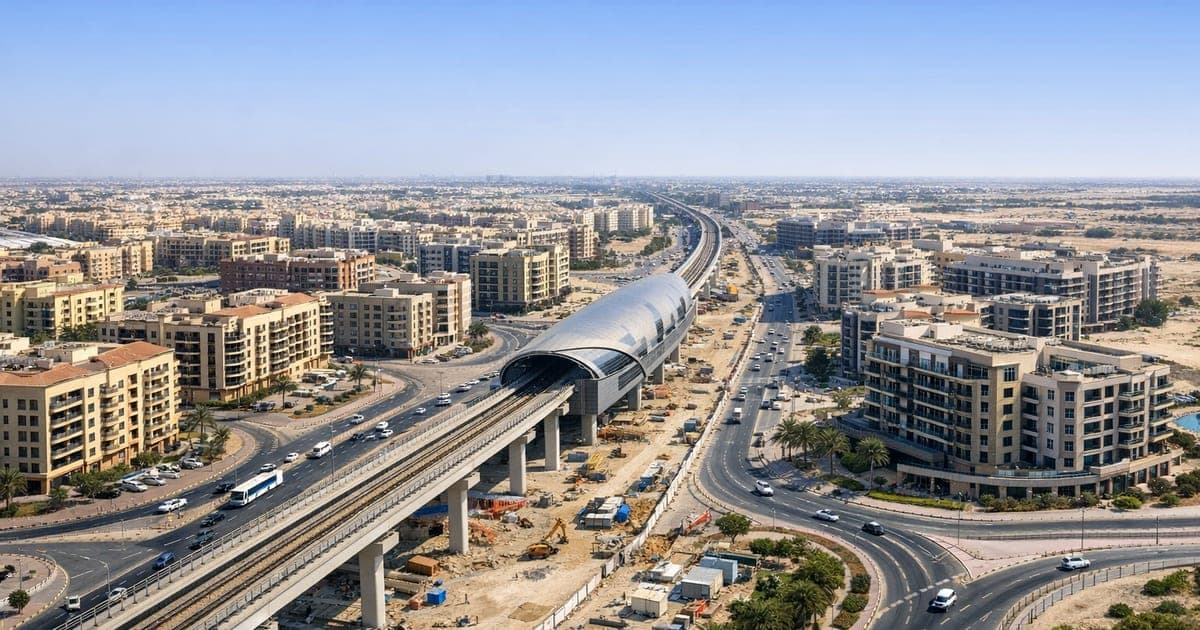
Feb 12, 2026

Feb 9, 2026
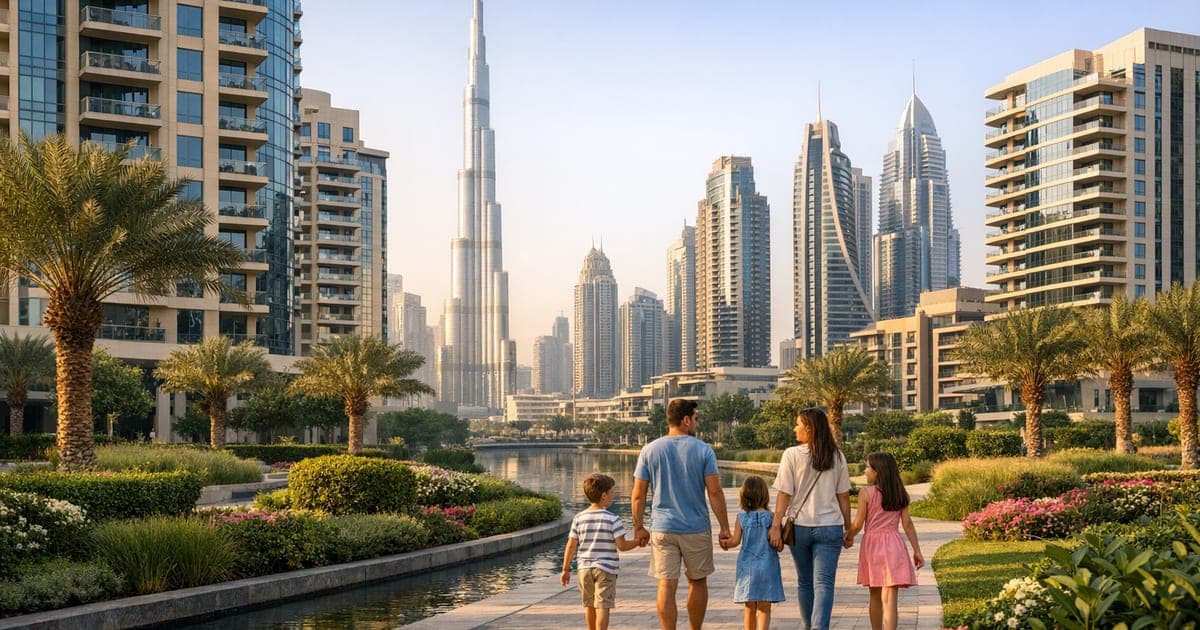
Feb 5, 2026
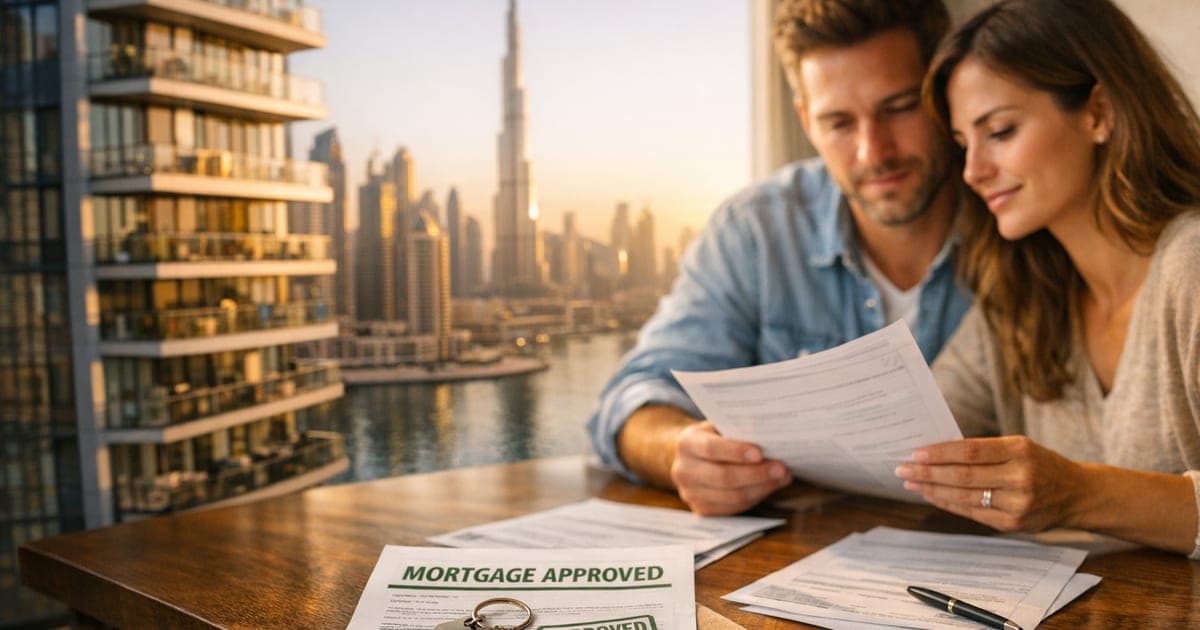
Feb 2, 2026

Feb 1, 2026
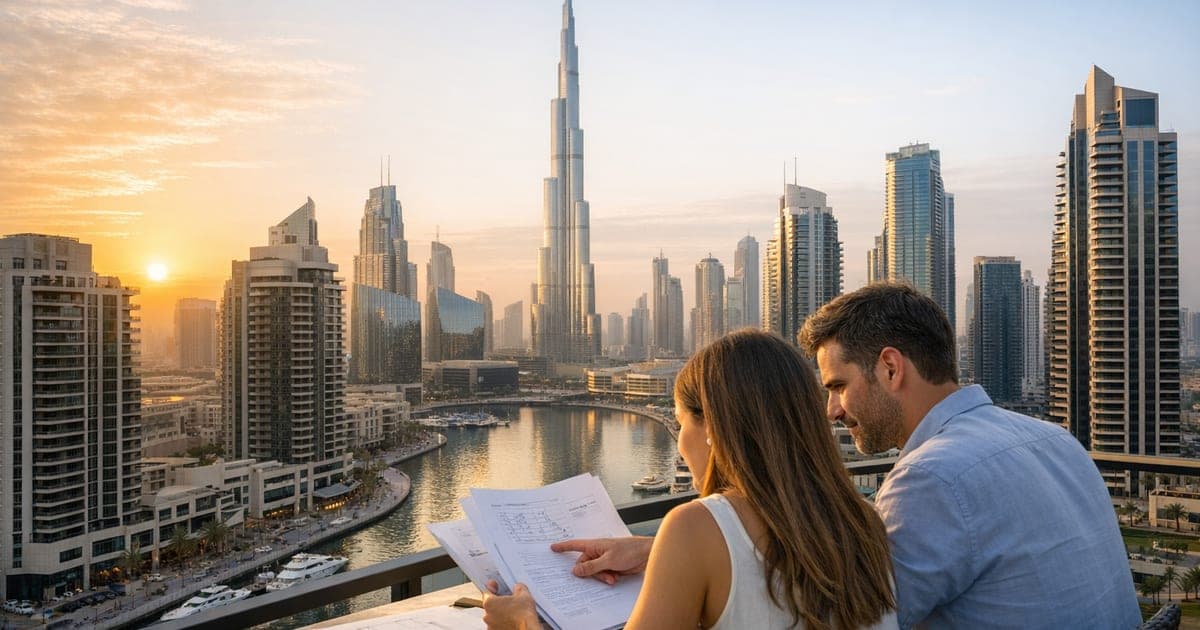
Jan 31, 2026
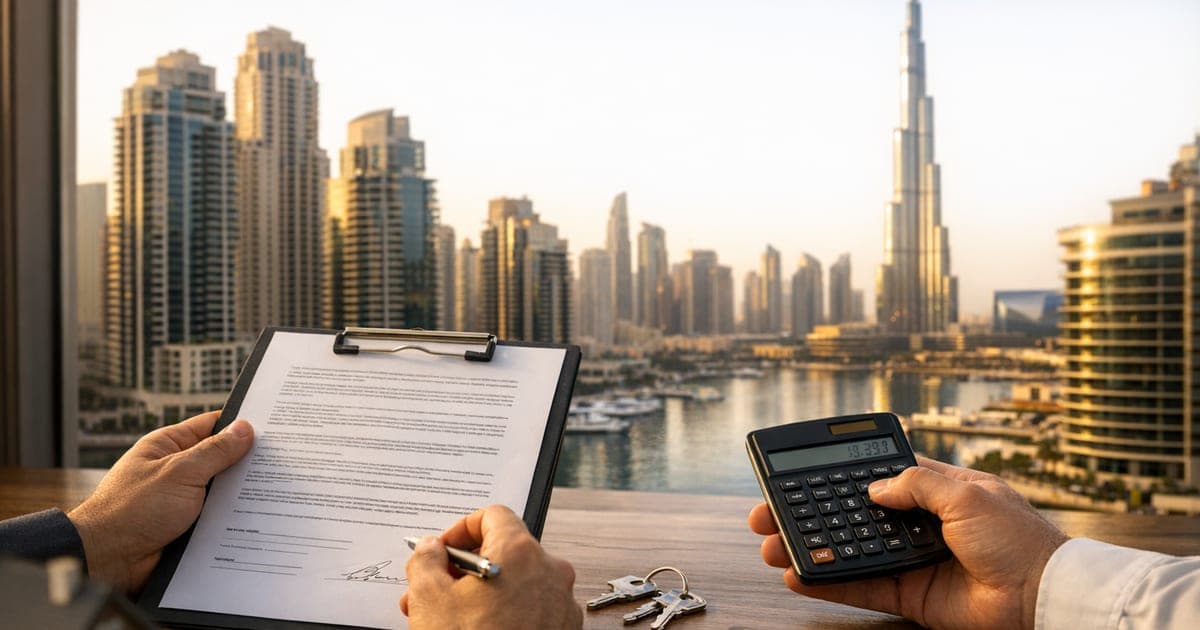
Jan 29, 2026
